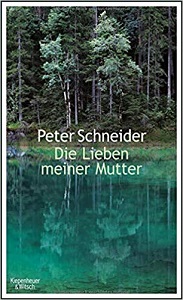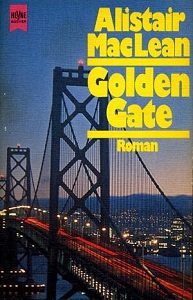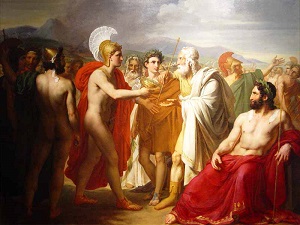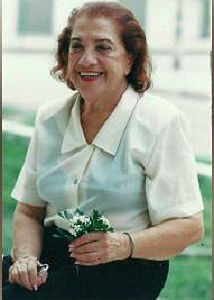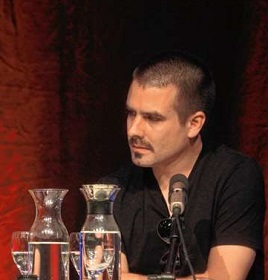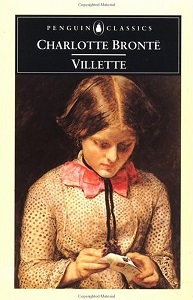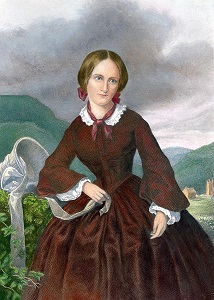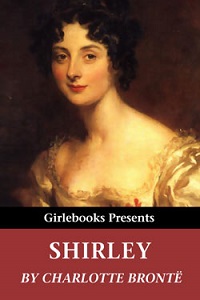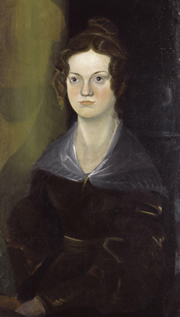De Duitse schrijver Peter Schneider werd geboren in Lübeck op 21 april 1940. Zie ook alle tags voor Peter Schneider op dit blog.
Uit: Die Lieben meiner Mutter
„Durch die Hilfe von Gisela Deus, die kaum älter ist als ich und die Sütterlinschrift auch nie gelernt hat, wurden die Briefe einer nach dem anderen lesbar. Sie hatte sich jedoch schon als Kind bemüht, die in der fremden Schrift geschriebenen Briefe ihrer Eltern zu entziffern.
Mit zunehmender Neugier las Gisela Deus sich in die Handschrift und den Seelenzustand meiner Mutter ein, aber auch ihr gelang es nicht, alle Wörter zu entschlüsseln. Mit der Zeit entwickelte sie eine Art Jagdinstinkt, der sie trieb, der Suche nach einem fraglichen Wort, einem Halbsatz so lange zu folgen, bis ihr die Lösung zufiel. Wenn sie nicht weiterkam, so erklärte sie, habe sie sich manchmal einen Kaffee gemacht, den Fernseher angeschaltet oder sei einkaufen gegangen. Aber die ganze Zeit über sei sie, ohne es zu wollen, in Gedanken zu der fraglichen Passage zurückgekehrt. Und plötzlich
sei die Lösung vor ihrem inneren Auge gestanden.
Meistens habe ihr nur die Einfühlung in die Diktion und den Seelenzustand meiner Mutter weitergeholfen. Sie wunderte sich, warum ich mir nie die Mühe gemacht hatte, der sie sich unterzog. Wenn ich nur gewollt hätte, meinte sie, hätte auch ich die Briefe lesen können.
Die Übersetzerin der Briefe meiner Mutter wurde im Lauf der Monate und Jahre zu einer unentbehrlichen Gesprächspartnerin. Anfangs rätselten wir gemeinsam nur über das eine oder andere unleserliche Wort.
Später ging es immer mehr um die Bedeutung eines ganzen Satzes, um seine Einordnung in den Kontext, um die Persönlichkeit der Verfasserin. Gisela Deus geriet immer mehr in den Sog der Briefe, sie lebte mit ihnen und begann sich mit der Verfasserin zu identifizieren.
Sie war angerührt von der melancholischen Grundmelodie der Briefe und von der Schönheit der Sätze, die meine Mutter für ihre Stimmungen gefunden hatte. Manchmal, so gestand sie mir, wenn sie im Wind auf einem kalten S-Bahnhof stand, fiel ihr eine Passage aus einem der zuletzt übersetzten Briefe ein und jagte ihr eine Gänsehaut über den Rücken. Sie wurde zu einer Anwältin meiner Mutter und verteidigte den einen oder anderen Brief gegen meine Lesart.“

Peter Schneider (Lübeck, 21 april 1940)
De Columbiaanse dichteres Meira Delmar (eig. Olga Isabel Chams Eljach) werd geboren in Barranquilla op 21 april 1922. Zie ook alle tags voor Meira Delmar op dit blog.
Solitude
There’s nothing like this bliss
of feeling so alone
in mid-afternoon
and in the middle of the wheat field;
under the summer sky
and in the arms of the wind
I am one more ear of wheat.
I have nothing in my soul,
not even a small sorrow,
nor an old remembrance
that would make me dream . . .
I only have this bliss
of being alone in the afternoon,
just with the afternoon!
A very long silence
is falling on the field,
for already the sun is leaving
and already the wind is leaving;
who would give me forever
this inexpressible bliss
of being, alone and serene,
a miracle of peace!
Vertaald door Nicolás Suescún
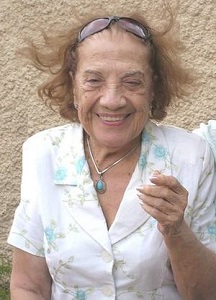
Meira Delmar (21 april 1922 – 18 maart 2009)
De Schotse schrijver Alistair Stuart MacLean werd geboren op 21 april 1922 in Glasgow. Zie ook alle tags voor Alistair MacLean op dit blog.
Uit: The Golden Gate
“The operation had to be executed with a surgically military precision marked with a meticulousness that matched, in degree if not in scope, the Allied landings in wartime Europe. It was. The preparations had to be made in total stealth and secrecy. They were. A split-second co-ordination had to be achieved. It was. All the men had to be rehearsed and trained, over and over again until they played their parts perfectly and automatically. They were so trained. Every eventuality, every possible departure from the planned campaign had to be catered for. It was. And their confidence in their ability to carry out their plan, irrespective of reversals and departures from the norm, had to be total. It was. Confidence was a quality exuded by their leader, Peter Branson. Branson was thirty-eight years old, just under six feet tall, strongly built, with black hair, pleasant features, lips that were curved in an almost perpetual smile and light blue eyes that had forgotten how to smile many years ago. He was dressed in a policeman’s uniform but he was not a policeman. Neither was any of the eleven men with them in that disused trucker’s garage not far from the banks of Lake Merced, halfway between Daly City to the south and San Francisco to the north, although three were attired in the same uniform as Branson.
The single vehicle there looked sadly out of place in what was, in effect, nothing more than an open-ended shed. It was a bus, but barely, by normal standards, qualified for the term. It was an opulently gleaming monster which above shoulder level was composed, except for the stainless-steel crossover struts, entirely of slightly tinted glass. There was no regular seating as such. There were about thirty swivel chairs, anchored to the floor but scattered seemingly at random, with deep armrests and aircraft-type swing-out dining-tables housed in each armrest. Towards the rear there was a cloakroom and a remarkably well-stocked bar. Beyond that there was a rear observation deck, the floor of which had for the moment been removed to reveal the cavernous baggage department. This was filled to near capacity but not with baggage. This enormous storage space, seven and a half feet wide by the same in length, held, among other things, two petrol-driven electric generators, two twenty-inch searchlights, a variety of smaller ones, two very peculiar-looking missile-like weapons with mounting tripods, machine-pistols, a large crated unmarked wooden box, four smaller wooden boxes, and a variety of other items of material, conspicuous among which were large coils of rope.”
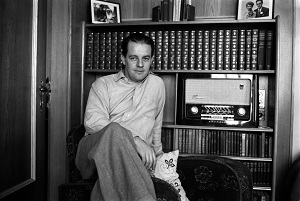
Alistair MacLean (28 april 1922 – 2 februari 1987)
In 1960
De Franse dichter en schrijver Népomucène Lemercier werd geboren op 21 april 1771 in Parijs. Zie ook alle tags voor Népomucène Lemercier op dit blog.
Uit: Agamemnon
«AGAMEMNON: Les golplies du Bosphore et les fies cl’AEgée aux pieds du mont Athos la Thrace interrogée, la florissante Épire, et Corinthe, et Délos, Athènes, que la nier vient laver de ses flots, ignorent de quels vents sa flotte fut poussée; même on dit que Pallas, dans Pergame offensée venge sur tous les Grecs son temple ensanglanté, et les livre au trident de Neptune irrité. Des débris des vainqueurs l’onde au loin est couverte; déjà du grand Ajax et du fils de Laërte, l’un est errant, captif, dans des pays déserts, l’autre , atteint de la foudre , a péri clans les mers. En proie au même sort, Agamemnon sans doute t’épargneral’instant que ta haine redoute, et sa mort te livrant.Micène et tous ses droits, met dans tes mains sa veuve et le sceptre des rois. •
ÉGISTE: Sa mort, ou son retour, que tu crois si funeste doit peu m’épouvanter : je suis fils de Thieste.
PALLENE: Egiste , je t’entends; c’est, témoigner assez combien à-son trépas tes voeux intéressés….
ÉGISTE: S’il n’est plus, je reprends tous mes droits à l’empire; s’il rentre dans Argos….
PALLENE: eh bien? parle…..
ÉGISEE: il expire. Ma ‘vengeance Pattend la mort est sous ses pas.
PALLENE: D’un projet si hardi tu ne frémirois pas?
ÉGISTE. Je frémis du repos où languit ma colère, des cris qu’ont exhalés les mànes de mon père, de ce nom emprunté qui cache dans ces lieux tous une humble infortune Égiste furieux. PALLENE: Ainsi L’opinion que nos soins ont nourrie ne voit toujours en toi qu’un prince d’Illyrie , et le nom de Plexippe?…
ÉGISTE:. Oui l’allène , ce nom trompa jusqu’aujourd’hui la cour d’Agamemnon. Te dirai-je , combien révoltant mon courage , cette lente imposture est pénible à ma rage, combien dans ce palais je dévore d’ennuis! … Il est temps qu’un forfait révèle qui je suis.
PALLENE: Ainsi donc tes destins sont inconnus encore.
ÉGISTE: Clitemnestre les sait, le reste les ignore.”
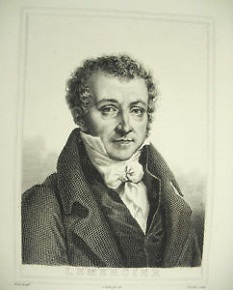
Népomucène Lemercier (21 april 1771 – 7 juni 1840)
Onafhankelijk van geboortedagen:
De Duitse dichter Gerrit Wustmann werd in 1982 in Keulen geboren. Zie ook alle tags voor Gerrit Wustmann op dit blog.
Uit: Istanbul Bootleg
haci
fiinfrnal täglich schallt
grüne einsamkeit durch die straßen
hallt der gebetsruf der simitçi trifft
auf stumme katzenpfoten
auf alte schleifwerkzeuge
und die kälte die kälte
unter der haut die kälte
einer grünen dir
tater beyi
winken weißer hände wo
nichts ist und niemals etwas war
durch die begrünte schlucht in der
man sich nie mehr begegnen wird
durch das loch
im küchenfußboden
blinzelt der himmel
der bauzaun wird abgebrochen
oberflächenfotografie der fassade
der schutt ist abgetragen die leere
zugestellt mit glasfassaden jetzt
geht der blick durch hölzerne gitter
trifft sich im kleinsten gemeinsamen grün
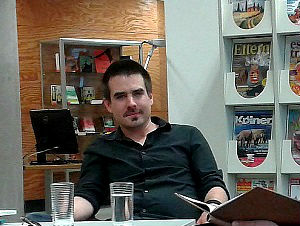
Gerrit Wustmann (Keulen, 1982)





